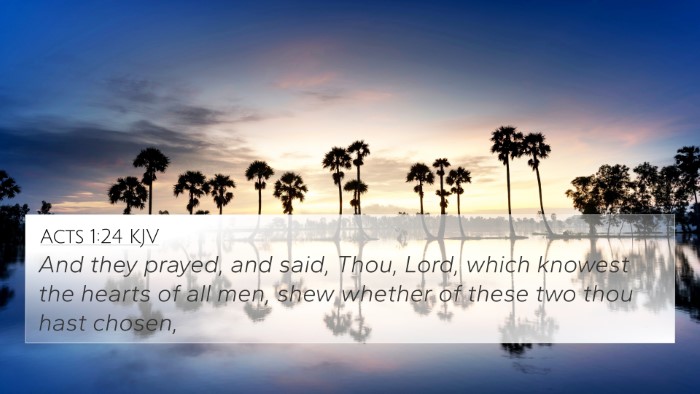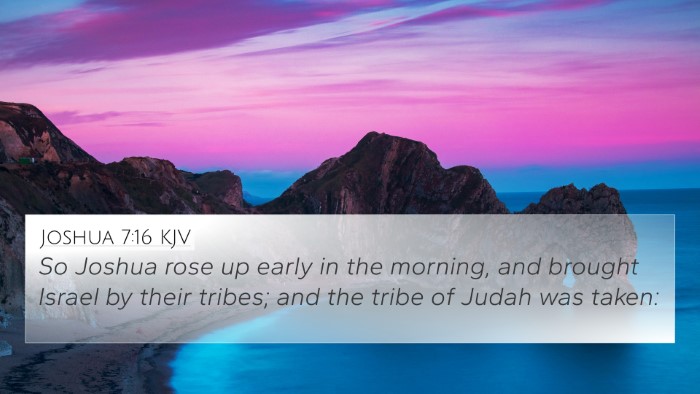Understanding 1 Samuel 14:41
1 Samuel 14:41 states: “Therefore Saul said, ‘O Lord God of Israel, why have You not answered Your servant this day? If the fault is in me or in Jonathan my son, O Lord God of Israel, give Urim; but if it is in Your people Israel, give Thummim.’ And Jonathan and Saul were taken, but the people escaped.”
Contextual Background
This verse occurs during a critical moment in the narrative of Saul’s kingship, specifically after a battle against the Philistines. Saul, troubled by the silence of God, uses the Urim and Thummim as a means to discern divine will. This moment reveals Saul’s desperation and the significance of divine guidance in leadership.
Commentary Insights
Matthew Henry's Commentary
Matthew Henry emphasizes Saul's recognition of the importance of seeking God’s guidance. He points out that Saul is acknowledging a deviation from God’s favor, which prompts him to seek clarity through the sacred lot. This indicates that true leaders must prioritize divine approval over human judgment.
Albert Barnes' Notes
Albert Barnes highlights the use of Urim and Thummim as a means of determining God’s will. This historical practice illustrates how ancient Israel sought divine answers amidst uncertainty, serving as a reminder of reliance on God. Barnes notes that Saul’s inquiry reflects a heart that is still concerned about aligning with God's purposes, despite past transgressions.
Adam Clarke's Commentary
Adam Clarke discusses the implications of Saul’s actions, suggesting that this moment marks a significant point of confusion and realization for Saul. Clarke emphasizes that Saul's inquiry indicates a moment of introspection concerning his and Jonathan’s faithfulness while suggesting that solutions to problems must be sought from God rather than relying on human strategy.
Thematic Connections
This verse can be understood within several broader themes:
- Divine Silence: Saul’s plea for an answer shows the gravity of being met with divine silence, a theme found throughout the Scriptures.
- Leadership and Accountability: Recognizing one’s shortcomings is crucial for leaders, reflecting the requirement for humility.
- Judgment and Direction: The reliance on God's instruments (Urim and Thummim) illustrates the importance of divine guidance.
Cross-References
The following verses provide comparative insights and thematic connections to 1 Samuel 14:41:
- Exodus 28:30 - Discussing the use of Urim and Thummim for divine decision-making.
- Proverbs 3:5-6 - Trusting in the Lord for guidance aligns with Saul's search for God’s will.
- Psalm 25:4-5 - A prayer for guidance, reflecting a similar heart as Saul’s in inquiry.
- 1 Samuel 28:6 - Another instance of Saul seeking the Lord, highlighting his troubled relationship with God.
- James 1:5 - God offers wisdom generously, which informs how one should seek divine counsel.
- Jeremiah 29:13 - The promise that those who earnestly seek God will find Him corresponds with Saul's earnestness.
- Luke 6:12 - Jesus sought God’s direction in prayer, similarly emphasizing the need for divine guidance in leadership.
Conclusion
1 Samuel 14:41 exemplifies the struggle for divine guidance amidst leadership challenges. By integrating insights from respected commentaries and cross-referencing with relevant Scripture, one can appreciate the depth and importance of seeking God’s will. This verse serves as a reminder for believers to rely on God in all aspects of their lives, especially in times of uncertainty.







